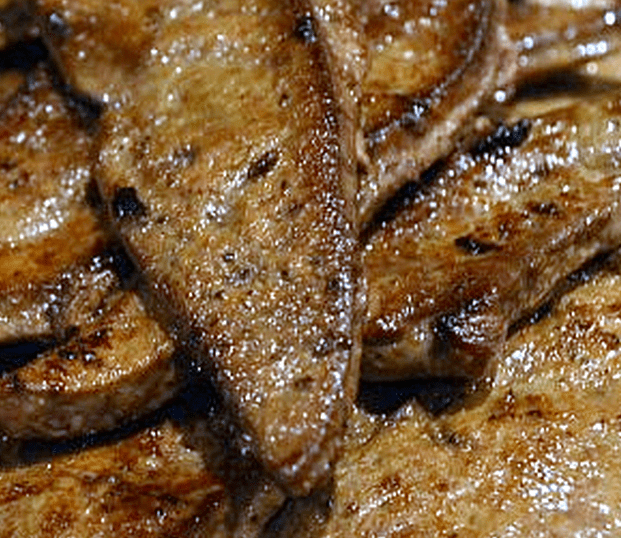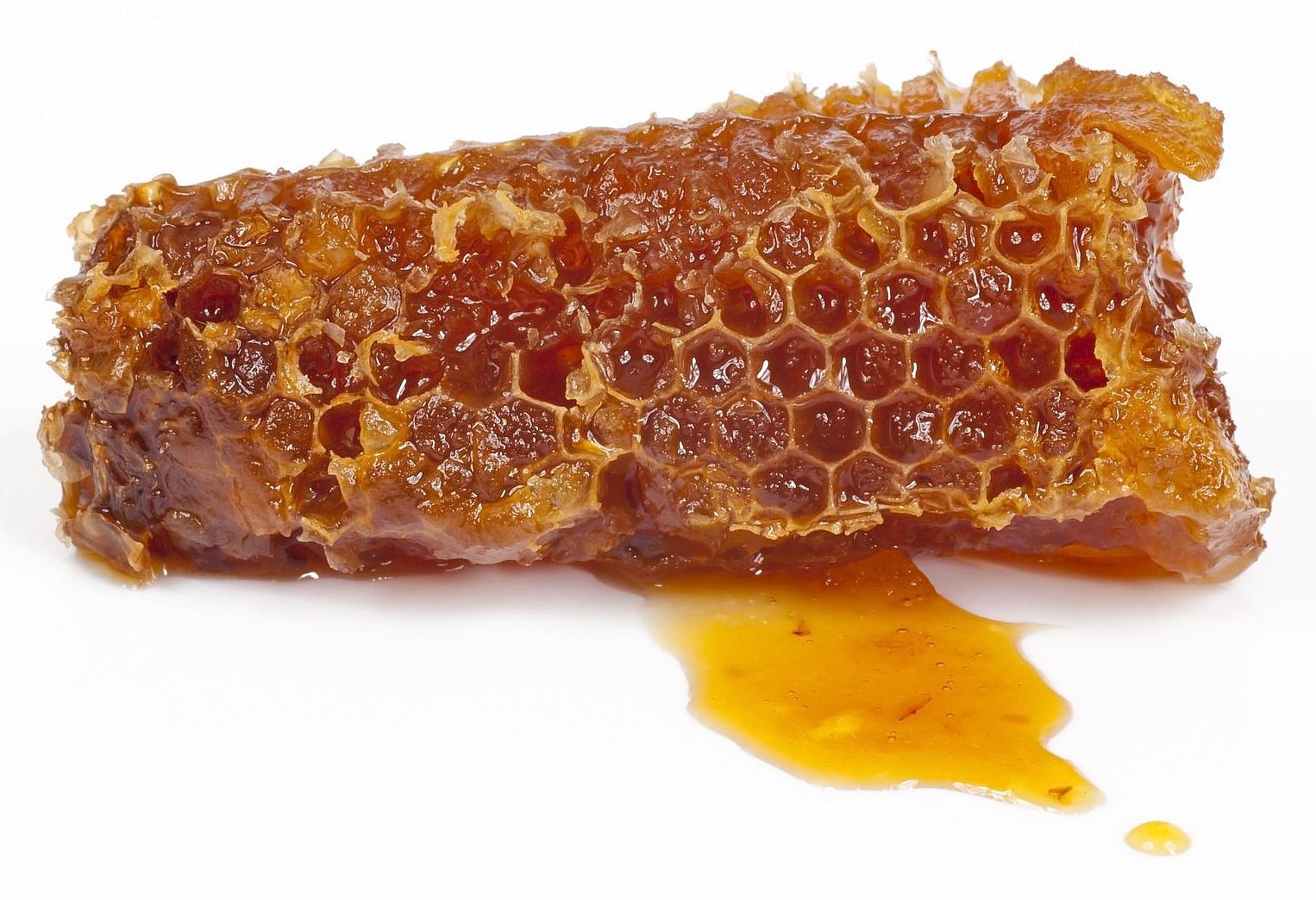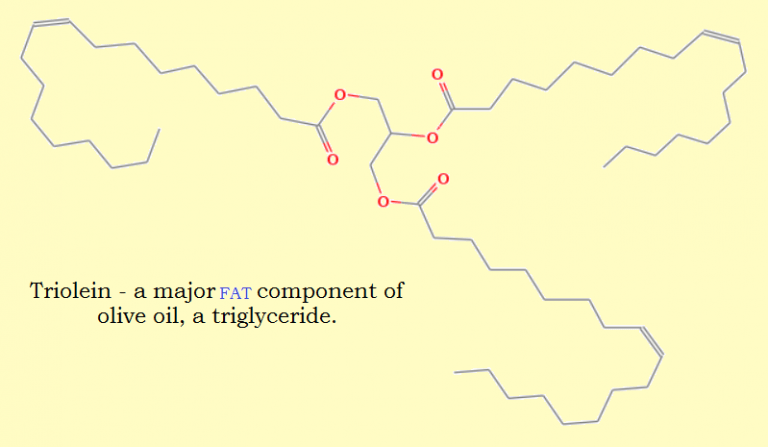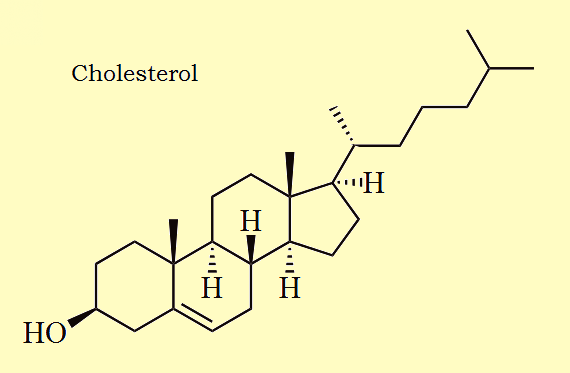
“And in this corner…” so starts the boxing match. But, what does that have to do with liver?
It illustrates people’s feelings about fried liver. They migrate to one corner or the other in a food boxing match. They love it or they hate it.
What’s the chemistry of liver – and how does it impact your health? For liver to have any effect at all, you have to actually take a bite – so let’s first consider some of the typical statements people make about this food.
First, let’s consider those people who stick up their nose at the mere mention of fried beef liver.
Those Who Stick Up Their Nose
You are doubtless aware of what the raised nose signifies. It suggests snobbery – the feeling, in some context, of superiority of one over another.
The non-liver-eater may feel more sophisticated and health-conscious than the one who eats liver. You may have heard (or said):

- Liver is “yucky” (or something similar).
- It filters toxins from the blood; who wants to eat toxins?
- It’s high in fat and cholesterol, it’s bad for you!
When I’ve heard “yucky” in connection with liver, it usually means that it looks “yucky” before cooking or smells “yucky” while cooking. The same has been said of other, popular foods, such as lamb or tongue. The complainer may refer to taste, even though may have never even tried fried beef liver. If he did, it probably was only as a child. What a child thinks tastes good almost always changes as he grows up.
As to the filtering of toxins, yes, it is true. The human liver, for instance, filters toxins. In fact, the liver converts fat-soluble toxins into water-soluble substances that are readily disposed of in the urine. Some of these substances are referenced in the cited Cornell College reference. Among them are “medications, drugs, hormone enhancers, food additives, preservatives, food coloring, sweeteners, flavor enhancers, chemicals used in agriculture, alcohols, volatile organic compounds, fumes, air pollution.”

However, when one eats liver, one is not eating these things. Even honey comes out of a bee’s body. So honey is gross, right?
The third complaint is that liver is high in fat and cholesterol. We’ll obtain a clearer understanding on that issue in the paragraphs that follow. First, let us consider how many prepare the beef liver they intend to eat.
How Fried Beef Liver is Prepared
Store-bought liver is de-veined and usually sliced. The home cook then washes, flours, and fries the liver, often in a cast iron pan, frequently nestled in onions. Perhaps a bit of bacon or some other “secret ingredient” is added as well. The dish is fried until deeply caramelized. Caramelization refers to cooking a food item until the sugar molecules in it form caramel.
Admittedly some liver is better than others. It’s important to find a quality source and purchase that, as with any other food product. As to variety, there is beef or calves liver. There is also pork, chicken, and deer liver—in fact there are many others as well. We will consider beef liver in this article.
Chemically-Speaking, What is in Liver—Good and Bad?
Chemically-speaking, there’s a lot going on in liver: protein, spermine, vitamins and minerals.
Liver contains a little over 20% protein, one of the most important dietary ingredients. Proteins consist of amino acids joined together (with loss of water) to form peptide linkages. Peptide linkages are linkages of the form -CO-NH- as shown in the diagram.

Protein is also rich in nitrogen, an important constituent of DNA and RNA.
One nitrogen-rich dietary nutrient especially abundant in beef liver is spermine. Curiously, researchers believe spermine serves as a free-radical scavenging protector of DNA. A free radical is a molecular fragment that contains a free, that is an unbound, electron.

In addition, liver is rich in all the B vitamins, some trace metals, and folic acid. Add to this glowing report that liver is iron-rich. A small serving of liver provides twice the daily requirement of iron.
Liver is very rich in Vitamin A as well. In fact, it is so rich in “A” that it is wise to minimize a serving to a handful of ounces.
The author has eaten as much as a pound of fried beef liver. That quantity of liver contains about 3,600% of our daily need.
Is That Much Vitamin A Bad?
Not all vitamins, particularly fat-soluble ones, should be eaten in large quantity. A huge excess of Vitamin A is not good. Polar bear and seal liver, for example, are two types of liver we should all avoid. Both are excessively rich in Vitamin A. Consuming polar bear or seal liver can even result in death, according to research published back in 1942.

Vitamin A assumes a number of forms. One major form is Retinol.
Ahem! What About Fat and Cholesterol?
Liver contains a little over 3.5% fat. This level of fat is about one-fourth that of a typical cut of beef, according to the USDA’s calculations.
Fried beef liver
Fat molecules consist of three long-chain fatty acid molecules (molecules with a carboxylic acid group, -COOH) all attached to one short molecule of glycerin, losing three molecules of water in the process. See the image of triolein in this article for an example.
Does the reader put homemade gravy over his meat or mashed potatoes? Almost surely, he’s exceeded the fat level in liver. Moderation, then, and not elimination is the key.

Does the reader eat eggs? Two eggs contain more fat than 3.5 ounces of beef liver. How about cholesterol? Pound for pound, beef liver contains 10% less cholesterol than eggs.
Whether cholesterol is bad or not is left to the reader and his medical professional to decide. However, the reader is likely unaware that the cholesterol deposited in our bodies actually is produced by our body.
Should I Eat Fried Beef Liver?
So is liver good or bad for me? Should I eat it or should I not eat it? That depends on you, of course. Does your doctor tell you that you must severely control the fat or cholesterol in your diet? If not, have you ever tried liver?
No food is for everyone. Everyone has the right to eat what he chooses. But if you have never tried liver because you are prejudiced against it, why not give it a chance? It is one of the least expensive, most nutritious sources of animal protein out there. You might even prove to be one of those elite who can’t resist fried liver.
Note: You might also enjoy Is Fish Really Brain Food?
References:
- U.S. Department of Veteran Affairs: The Liver is a Filter
- University of California San Francisco: Cholesterol Content of Foods
- American Heart Association: About Cholesterol
- Harvard School of Public Health: Fats and Cholesterol
- B, Flávia, et al.: Bioactive amines in fresh beef liver…. (2015). ScienceDirect
- H, HYO CHOL, et al.: The natural polyamine spermine functions directly as a free radical scavenger. (1998). Proceeds of the National Academy of Science
- Cornell College: What processes does the liver undergo to remove toxins?
- Rodahl, K, et al.: The Vitamin A Content and Toxicity of Bear and Seal Liver. (1942). Dunn Nutritional Laboratory, University of Cambridge, and Medical Research Council
- USDA: Ground Beef Calculator
← Back to Food and Health
← Home

Liver is a very important source of iron and very tasty. My favorite dish as a teenager was liver (with onions) and cabbage. Both contain iron and I probably needed it. Much better to get your iron from a food source than to have to take pills. It was always calves liver as far as I remember.
We used to eat calves’ liver when I was young, but I’ve grown to appreciate beef liver. I also enjoy deep-fried chicken livers. In fact, when I go to an all-you-can-eat restaurant nearby, I don’t choose the steak, but the chicken livers.